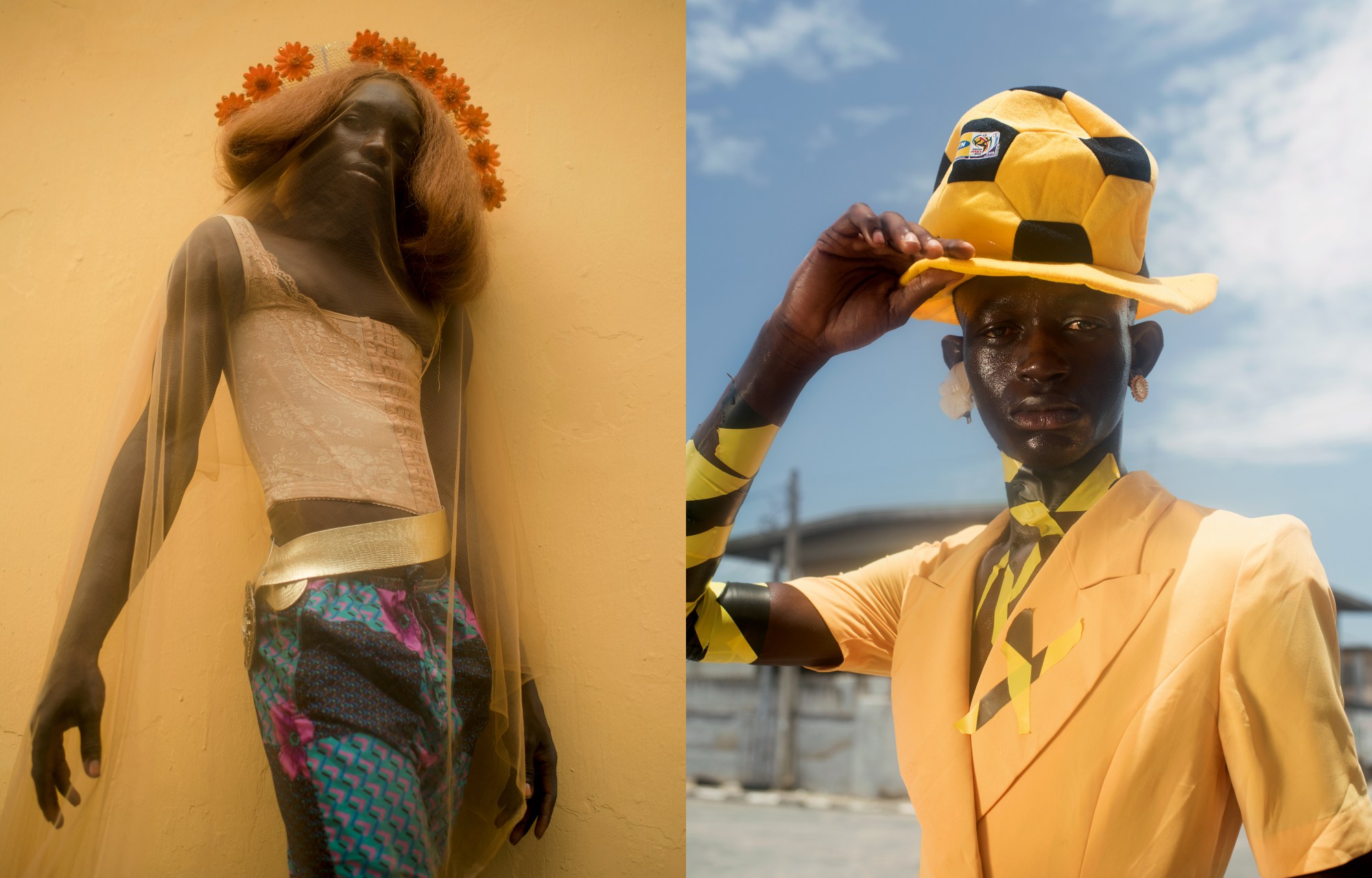‘Aperture’ magazine is one of the most relevant and enlightening publications in the photography world. As part of a regular series, i-D presents a digital version of one feature from each quarterly issue. This article, by M. Neelika Jayawardane, was originally published in Aperture Magazine fall issue, “Elements of Style.”
In her recent series 9-ja_17, photographed in Lagos in 2017, Nadine Ijewere relied on street casting—inviting random people she saw to be a part of the project, and asking friends to invite others. Ijewere, a twenty-five-year-old photographer who lives and works in London, emphasizes that her work is a collaborative labor, and in an unusual move, she credits both the subjects of her photographs as well as others who were involved in the process of making the images come to fruition.
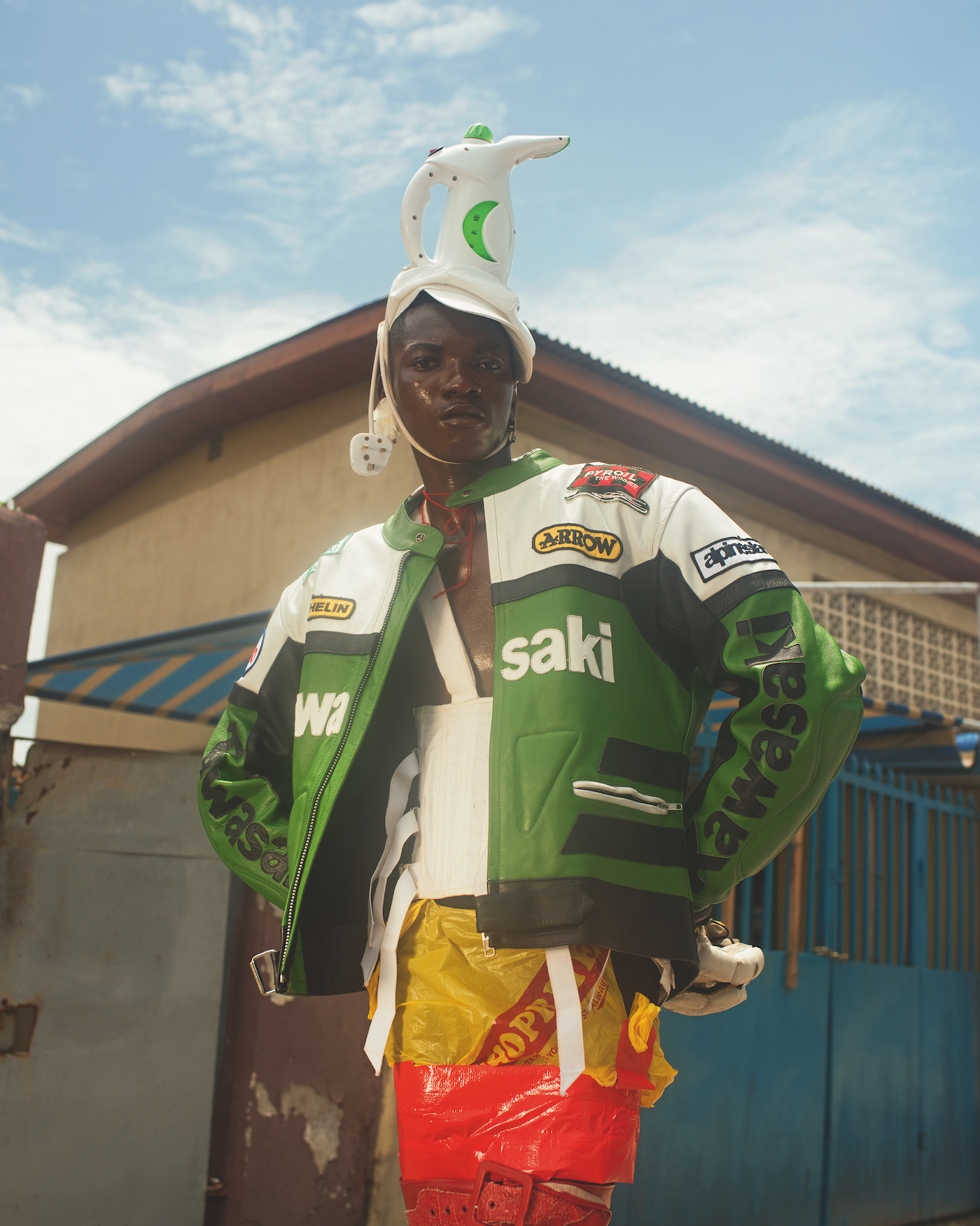
For 9-ja_17, Ijewere worked with stylist Ibrahim Kamara, known for his spectacular and futuristic visions of African masculinity. Here, Kamara used more muted local fabrics, accentuated by the ubiquitous effluvia of Lagos— footballs deconstructed into hats, plastic ShopRite bags shaped into skirts, black-and-yellow traffic-barrier tape to accentuate a lean limb. The resulting images are a conversation with Lagos, a city that seems to always be in the process of reconstructing itself. 9-ja_17 is also a dialogue with the city’s youth, who—despite throwaway economic and political conditions—are not disposable, or incapable of finding beauty and grace. Ijewere, whose mother is Jamaican and father is Nigerian, was born and raised in London, and frequently collaborates with Kamara, an in-demand stylist who was born in Freetown, Sierra Leone, and also raised in London. Ijewere’s identity, like Kamara’s, is an amalgamation of multiple locations and cultural experiences that do not allow for an easy sense of belonging. Art provides a space for experimentation and a fluid sense of self.
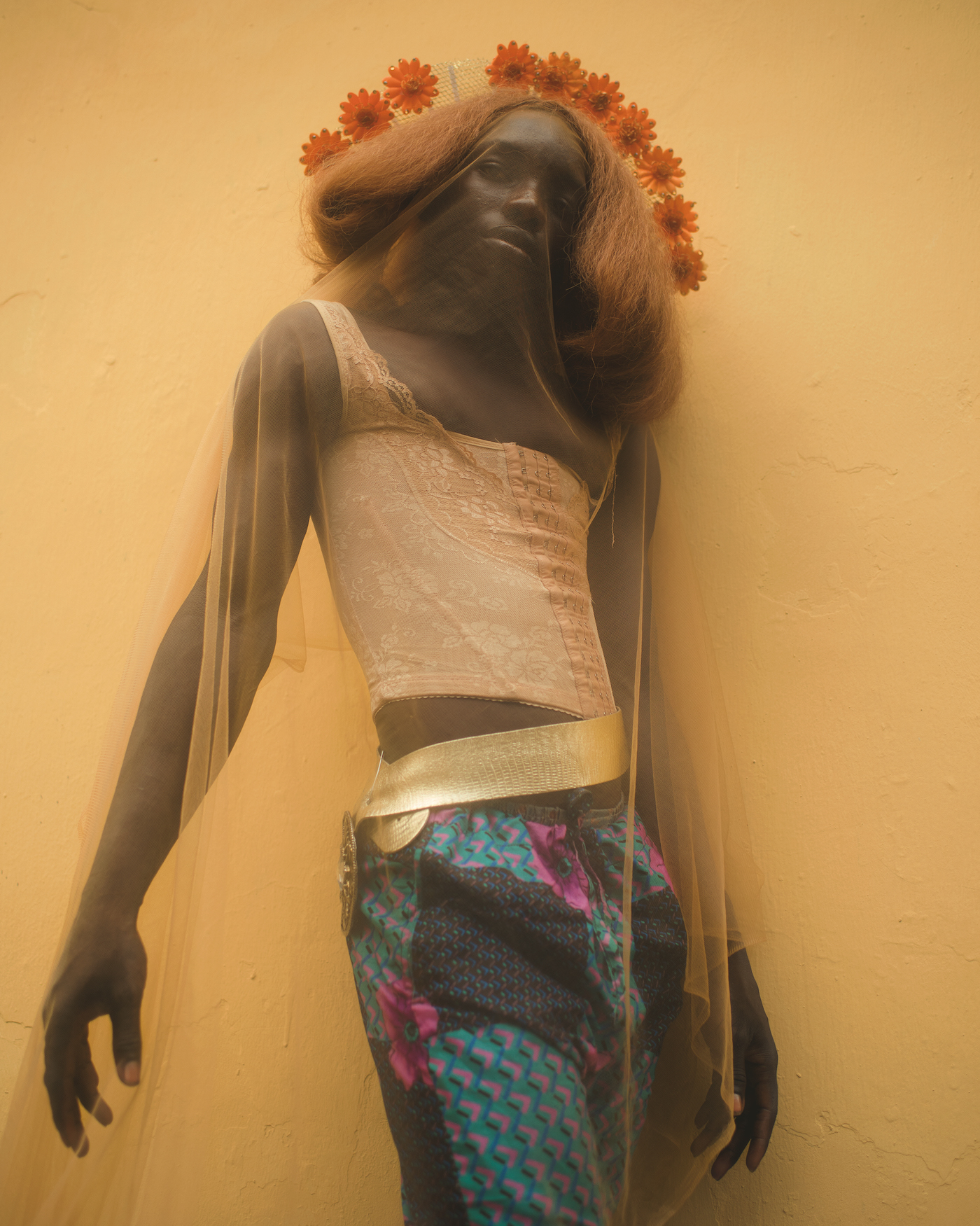
Challenging reductive stereotypes has always been part of Ijewere’s oeuvre. This approach can be seen in a project made during her studies at the London College of Fashion, The Misrepresentation of Representation (2014), in which she explored how orientalist and colonial concepts repeatedly creep into the ways beauty is conceptualized. She purposefully included the apparatus of photography within the frames—boom lights and a visible studio— to show that beauty does not exist outside the political, and that fashion is instrumental in forcing certain people’s identities into restrictive frameworks that, problematically, continue to be read as both representative and desirable.
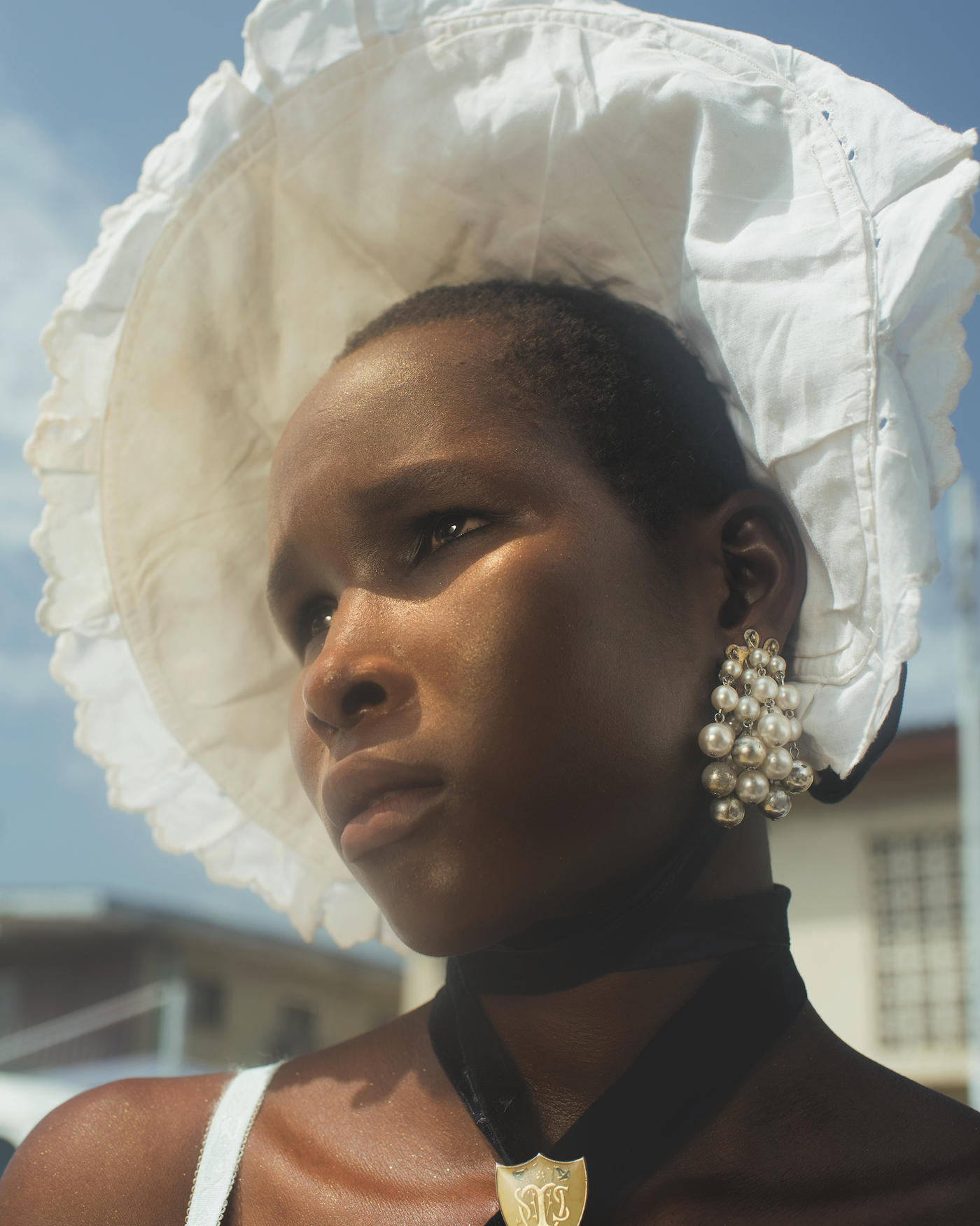
Ijewere’s #StellaBy Nadine Ijewere (2017)—her interpretation of Stella McCartney’s spring/summer 2017 collection—was also shot in Lagos. For the project, she wanted to bring her Nigerian identity to the brand, and to question restrictive ideals of beauty and gender. Given creative control, Ijewere interpreted McCartney’s clothing in ways that highlight the freedom and possibility of personal style. Ijewere was adamant that she work in Nigeria with the local community; the resulting images project confident interactions between her subjects and the landscape. Despite Nigeria’s reputation for being “quite a conservative place, we were shooting women’s wear on men, and the young men were all for it,” Ijewere told me. “They were all about celebrating different types of beauty, and it was really refreshing to witness.”
Fashion consumers are familiar with the go-to stories that editors and photographers mine, again and again, when it comes to Africa, in particular the colonial fantasy. Ijewere’s photographs and Kamara’s styling offer a refreshingly different tableau to that reductive landscape. Ijewere acknowledges that clothing and style are powerful forms of expression with which we might shape our subjectivities. Her images convey the lived realities of Lagos youth— a narrative of petrochemicals, disposable plastics, hazy sunshine, an obsession with ceremonial headwear, and Thriller-era glam. She shows us that through statements of individual beauty we become embodiments of our art practice, and more authoritatively inhabit the world.
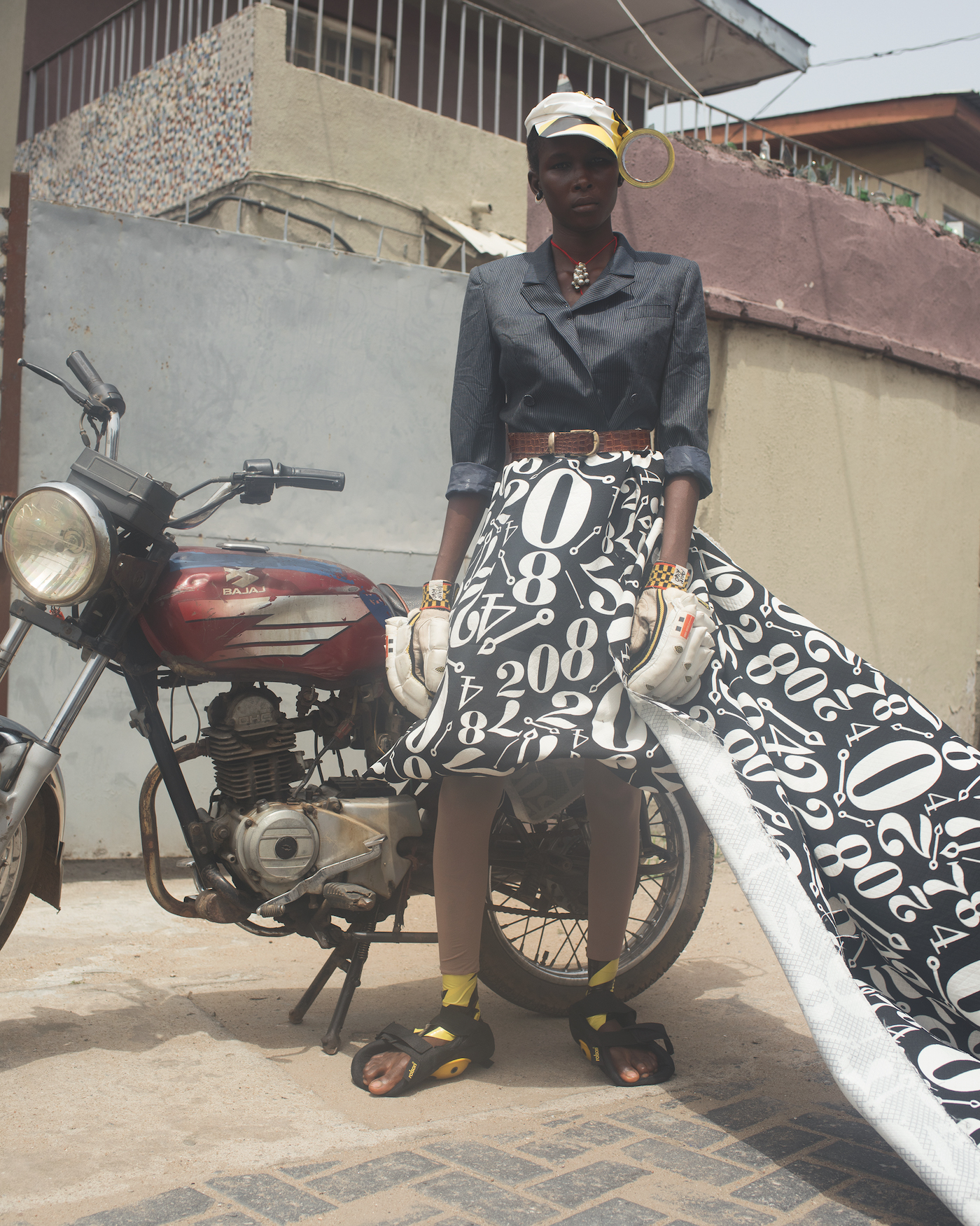
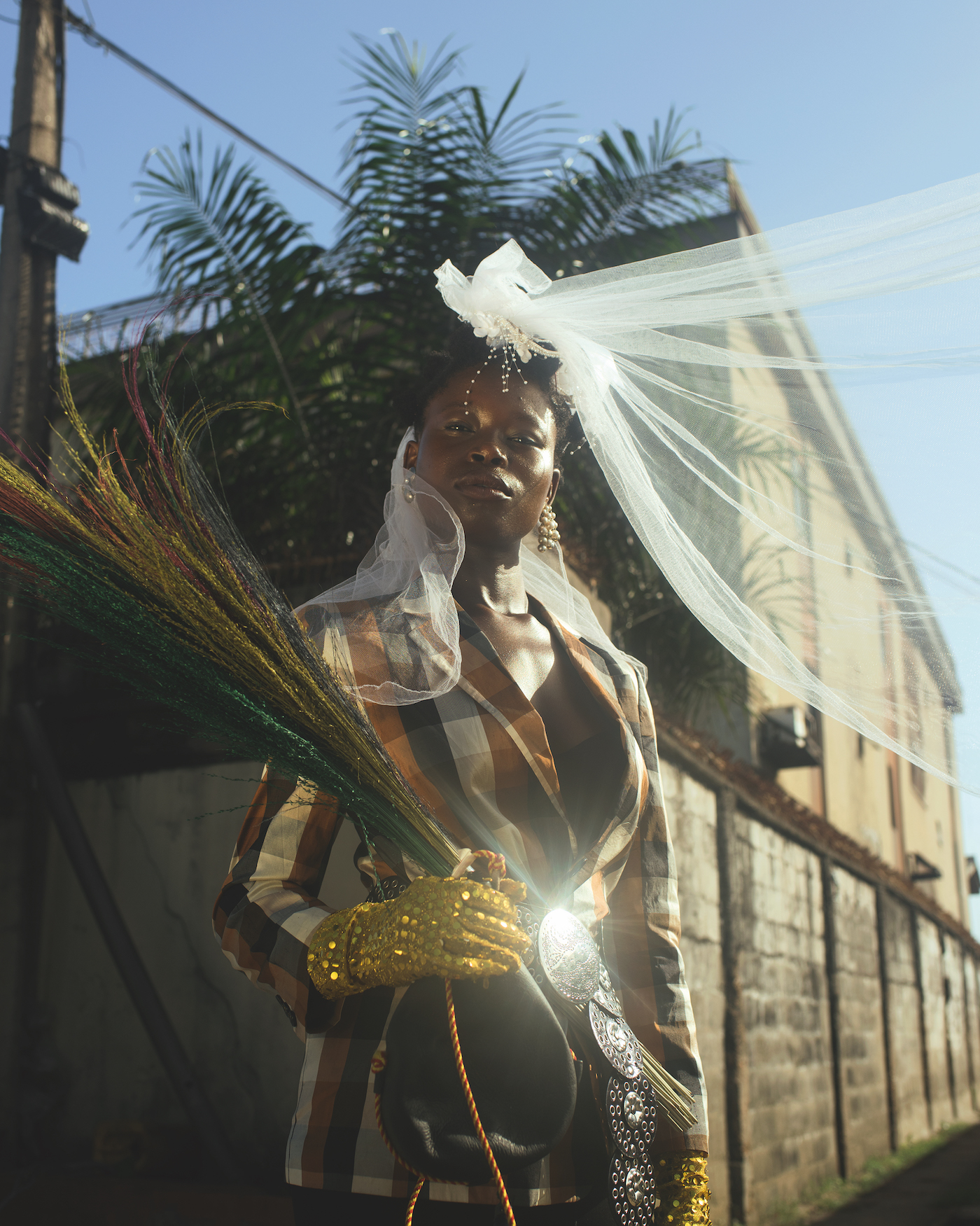
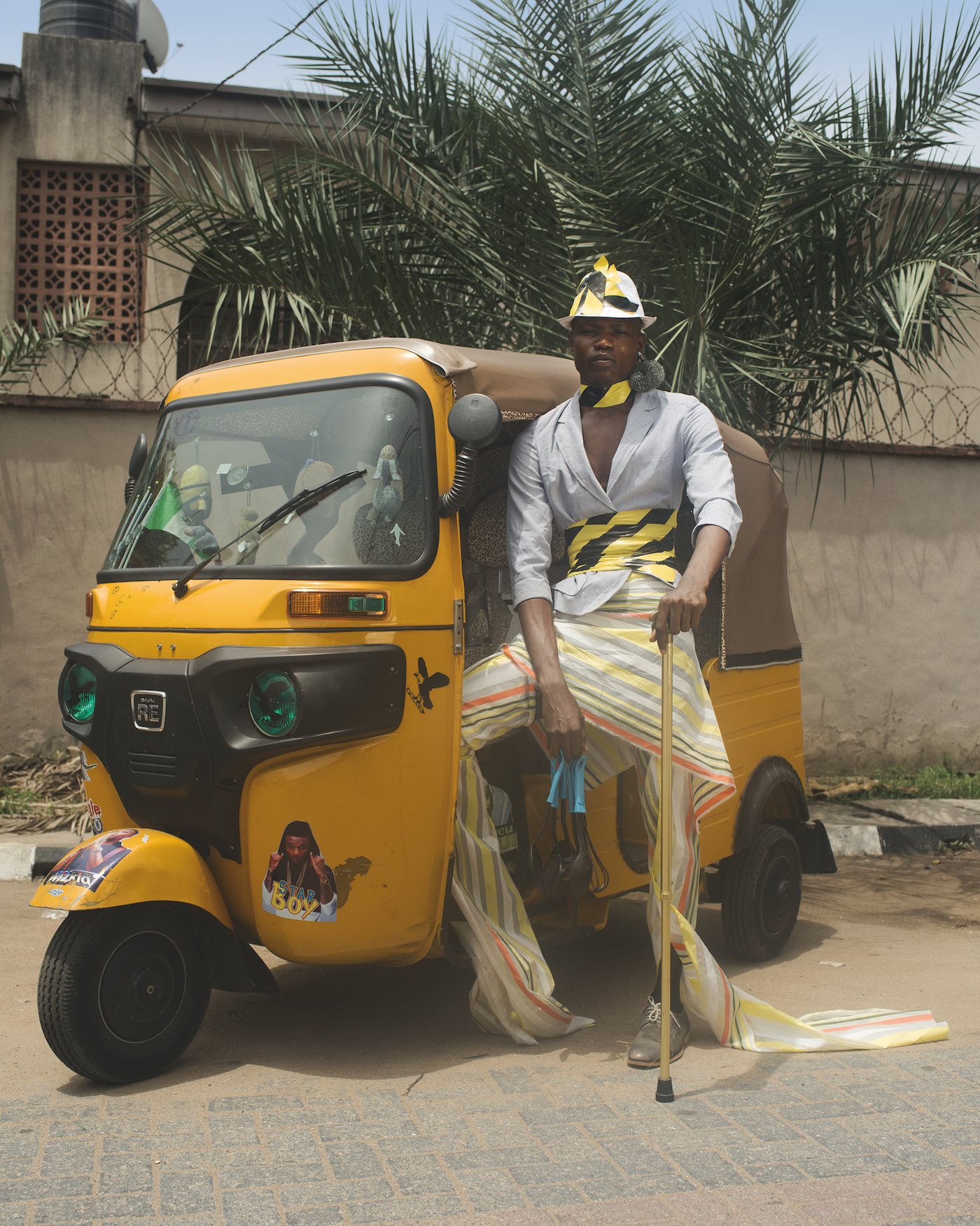

M. Neelika Jayawardane is Associate Professor of English at the State University of New York Oswego and an arts contributor to Al Jazeera English.
